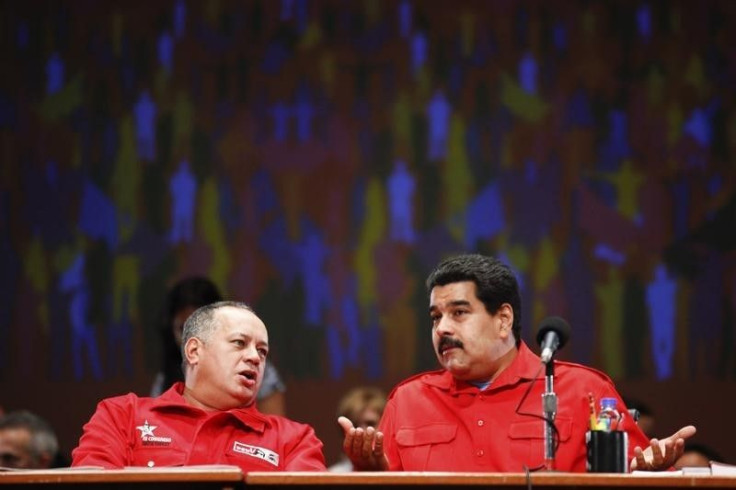Venezuelan Former Bodyguard Says Country's Number 2 Is A Drug Trafficker; Venezuela Hits Back

Venezuela’s leaders are hitting back at what they call another Western-fueled conspiracy to destabilize their government, this time over suggestions that the Socialist government’s second-in-command may be at the center of a drug trafficking ring.
Leamzy Salazar, who served as a bodyguard for Venezuela’s late President Hugo Chávez and current National Assembly leader Diosdado Cabello, reportedly defected to the U.S. on Monday to prepare witness testimony against Cabello. Two news outlets – the Miami-based El Nuevo Herald and Spain’s ABC – cited anonymous sources close to the investigation that said Salazar was planning to accuse Cabello of being the head of a drug trafficking organization known as the Cartel de los Soles (Cartel of the Suns).
Salazar had been working closely with agents from the U.S. Drug Enforcement Administration and the U.S. attorney in New York’s Southern District for the investigation for months, according to the reports. Sources who spoke with ABC said Salazar witnessed Cabello giving direct orders to ship several tons of cocaine, and knew where the National Assembly leader stored illicit profits from the trade.
Venezuelan officials confirmed Salazar’s defection on Tuesday, but vehemently denied the allegations against Cabello, saying they were part of a plot against the Socialist government. “Imperialist hands are behind this,” President Nicolas Maduro said during a televised speech Tuesday evening, throwing his support behind Cabello. “Why do they attack Diosdado? Because he is a brave leader, loyal to Commander Chávez, loyal to the people and loyal to President Maduro. They will never be able to harm our brotherhood.”
Cabello also took to Twitter to reject the accusations. “Every attack against me strengthens my spirit and my resolve. I give infinite thanks to the show of solidarity from our people,” he tweeted Tuesday.
Cada ataque contra mi persona fortalece mi espíritu y mi compromiso, agradezco infinitamente las muestras de solidaridad de nuestro pueblo
- Diosdado Cabello R (@dcabellor) January 27, 2015The U.S. has previously pointed fingers at senior Venezuelan officials for alleged involvement in drug trafficking, particularly in light of the country’s blooming role as a transit hub for the cocaine trade. Last summer the U.S. and Venezuela had a brief diplomatic tussle over the detention of Hugo Carvajal, Venezuela’s former chief of military intelligence, whom the U.S. indicted on charges of working with Colombian drug traffickers to smuggle cocaine across the U.S. border. Carvajal was eventually freed and returned to Venezuela.
Nine Venezuelan officials, five of them former military officers, are on the U.S. Treasury’s list of people suspected of having financial ties to drug trafficking.
© Copyright IBTimes 2024. All rights reserved.












